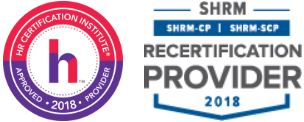Salary History Laws: Using those Laws to Promote Pay Equity
Duration : 60 Minutes

This program has been approved for 1.0 HR (General) recertification credit hours through the HR Certification Institute (HRCI) and 1.0 recertification credit hours (PDC) through the Society of Human Resource Management (SHRM).
Diane L. Dee, SPHR, SHRM-SCP,
Diane L. Dee, President and Founder of Advantage HR Consulting, LLC is a senior Human Resources professional with over 30 years of experience in the HR arena. Diane’s background includes experience in HR consulting and training & administration in corporate, government, consulting and pro bono environments.
It’s the job interview question you’d love to dodge: What’s your current, or most recent, salary? A low figure could limit your starting pay. I high number might make you seem too expensive. Now, several states and cities are banning the question as part of efforts to ensure pay equity for women and minorities, but some companies say the new laws represent yet another intrusion into their businesses.
Course Objectives:
It is often customary for employers to ask for salary history and use that information to set wages in a new position. But when we take a closer look, how is prior pay related to a worker’s ability to perform a new job? Shouldn’t employees be compensated for what their skills are worth to the new company and not be based on a different job from their past?
Background:
A worker’s salary history follows her from job to job. Low pay at an early job can affect salary at a later one, because hiring managers often base their offer on previous pay. Even candidates who negotiate and advocate strongly for themselves at the salary phase can wind up with a lower offer than someone who happened to earn more at an earlier position.
Thankfully, recent efforts at the state level are working to end this misleading practice, a welcomed step in ending the pay gap between men and women.
Course Outline:
• What do the salary ban laws prohibit?
• How asking about salary history impacts pay equity
• What employers can and cannot ask related to prior salary
• Best practices for employers to consider in light of new developments
• Employers’ options
Key Areas:
• How asking about salary history impacts pay equity
• Questions to ask instead of salary history
• Using market data to guide your compensation offers
• Best practices for communicating pay with future employees to increase offer acceptance rate
• Pricing the job, not the person
• Practical tips on how to comply with the salary history law
What You Get:
• Training Materials
• Live Q&A Session with our Expert
• Certificate from Lejarza HR Training and Consulting
• Access to Signup Community (Optional)
• Reward Points
Who Will Benefit:
• Payroll Professionals
• Human Resources and Accounting Personnel
• Business Owners
• Lawmakers
• Attorneys, or
• Any individual or entity that must deal with the complexities and technicalities of the payroll process
• Payroll Supervisors and Personnel
• Payroll Consultants
• Payroll Service Providers
• Public Accountants
• Internal Auditors
• Tax Compliance Officers
• Enrolled Agents
• Employee Benefits Administrators
• Officers and Managers with Payroll or Tax Compliance Oversight
• Company/Business Owners
• Managers/Supervisors
• Public Agency Managers
• Audit and Compliance Personnel /Risk Managers
Please reach us at 1-888-844-8963 for any further assistance or if you wish to register

100% MONEY BACK GUARANTEED
Refund / Cancellation policyGet In Touch
Similar Trainings
Disciplining and Terminating an Employee : What to Do and What Not to Do
LIVE : Scheduled on
21-January-2026 :01:00 PM EST
|
